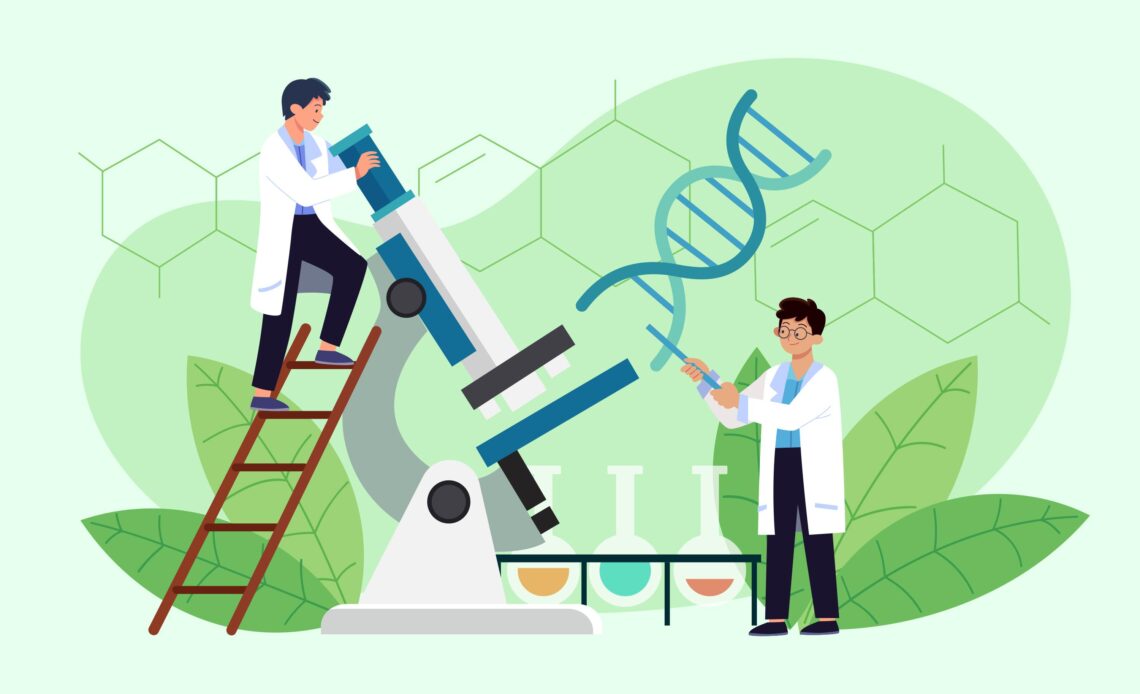Are migraines running in your family? It turns out that there may be a genetic link to this debilitating condition. In this article, we delve deep into the influence of genetics on migraine susceptibility and explore the patterns that can be seen within families.
Understanding the Role of Genetics in Migraine Susceptibility
Migraines are much more than just a bad headache. They often come with intense pulsating pain, sensitivity to light and sound, and can seriously disrupt daily life. While external triggers like stress, certain foods, and lack of sleep can contribute to migraines, genetics may also play a significant role.
Research suggests that certain gene variations can increase an individual’s vulnerability to migraines. These genetic variations can affect the way the brain processes pain signals and regulates blood flow. By studying familial patterns, scientists have been able to pinpoint specific genes that may be involved in migraine susceptibility. Understanding these genetic factors not only enhances our knowledge of migraines but also opens up the potential for personalized treatments and interventions.

Common Genetic Variations Associated with Migraines
Scientists have identified several common genetic variations that are associated with an increased risk of migraines. One such variation is the MTHFR gene, which plays a role in the body’s ability to process folate. Studies have shown that individuals with certain variations of the MTHFR gene may be more susceptible to migraines.
Another gene that has been linked to migraines is the TRESK gene. This gene is involved in the regulation of electrical signals in the brain. Variations in the TRESK gene may disrupt the normal functioning of brain cells, leading to an increased risk of migraines.
Familial Patterns of Migraines – How Genetics Can Influence Susceptibility Within Families
One of the most intriguing aspects of migraines is the presence of familial patterns. Many individuals with migraines have a family history of the condition, suggesting a genetic component. Research has shown that if one parent has migraines, their child is more likely to develop migraines as well. This suggests that there is a hereditary component to migraines.
In addition to the overall risk of migraines, familial patterns can also influence the characteristics of migraines experienced by family members. For example, some families may have a higher prevalence of migraines with aura, while others may experience migraines without aura. Understanding these patterns can help researchers identify specific genetic factors that contribute to different types of migraines.

Genetic Testing for Migraines – Its Benefits and Limitations
Genetic testing has become increasingly popular in recent years, offering individuals the opportunity to uncover potential genetic factors that may contribute to their health conditions. In the case of migraines, genetic testing can provide valuable insights into an individual’s susceptibility to the condition.
By analyzing an individual’s DNA, genetic testing can identify specific gene variations that are associated with an increased risk of migraines. This information can be useful in several ways. Firstly, it can help individuals understand their risk and take appropriate preventive measures. Secondly, it can guide healthcare professionals in developing personalized treatment plans based on the individual’s genetic profile.
However, it’s important to note that genetic testing for migraines has its limitations. While certain gene variations have been identified, they do not account for all cases of migraines. Migraines are a complex condition influenced by both genetic and environmental factors. Genetic testing can provide valuable information, but it should be considered as part of a comprehensive approach to migraine management.
The Impact of Environmental Factors on Migraine Susceptibility in Genetically Predisposed Individuals
While genetics play a significant role in migraine susceptibility, environmental factors also contribute to the development and frequency of migraines. In genetically predisposed individuals, certain environmental triggers can activate migraines.
Common environmental triggers include stress, certain foods (such as chocolate, cheese, and caffeine), hormonal changes, lack of sleep, and sensory stimuli like bright lights and loud noises. These triggers can activate the genetic factors that make an individual susceptible to migraines, leading to the onset of an attack.
Understanding the interplay between genetics and environmental factors is crucial for managing migraines effectively. By identifying and avoiding triggers, individuals with a genetic predisposition can reduce the frequency and severity of their migraines.

Genetic Counseling for Individuals with a Family History of Migraines
For individuals with a family history of migraines, genetic counseling can be a valuable resource. Genetic counselors specialize in helping individuals understand their genetic risk factors and make informed decisions about their health.
During a genetic counseling session, a counselor will review the individual’s family history, discuss potential genetic factors, and provide information about available testing options. They can also offer guidance on lifestyle modifications, preventive measures, and available treatment options based on the individual’s genetic profile.
Genetic counseling provides individuals with the knowledge and support they need to navigate their migraine journey effectively and make informed decisions about their healthcare.
Lifestyle Modifications and Preventive Measures
While migraines cannot be cured, there are several lifestyle modifications and preventive measures that individuals with a genetic predisposition can adopt to manage their condition effectively.
Consistent sleep, stress management, exercise, and avoiding triggers can reduce migraine frequency and severity. Additionally, maintaining a healthy diet, staying hydrated, and managing hormonal changes can also contribute to migraine management.
By adopting these lifestyle modifications and preventive measures, individuals can take an active role in managing their migraines and improving their overall quality of life.

Current Research and Advancements in Understanding the Genetics of Migraines
The field of genetics is constantly evolving, and ongoing research is shedding new light on the genetics of migraines. Scientists are uncovering additional gene variations that may be associated with migraines and exploring the complex interactions between genes and environmental factors.
One area of research focuses on the role of neurotransmitters in migraines. Neurotransmitters are chemicals that transmit signals between nerve cells. Studies have shown that certain neurotransmitters, such as serotonin and dopamine, may play a role in the development and severity of migraines. Understanding these neurotransmitter systems could lead to targeted treatments for migraines in the future.
Additionally, advancements in gene-editing technologies, such as CRISPR, hold promise for potential therapeutic interventions. By targeting and modifying specific genes associated with migraines, researchers may be able to develop personalized treatments that directly address the underlying genetic factors.
Conclusion
In conclusion, understanding the role of genetics in migraine susceptibility is crucial for effective management and treatment of this debilitating condition. While external triggers and environmental factors play a role, genetic variations can increase an individual’s vulnerability to migraines.
By studying familial patterns, scientists have identified specific genes that may be involved in migraine susceptibility. Genetic testing and counseling can provide individuals with valuable insights into their risk factors and guide personalized treatment plans.
So, if migraines run in your family, don’t despair. Take steps to understand your genetic risk factors and work with healthcare professionals to develop a comprehensive plan for managing your migraines. With the right knowledge and support, you can find relief and live a fulfilling life, free from the burden of migraines.


